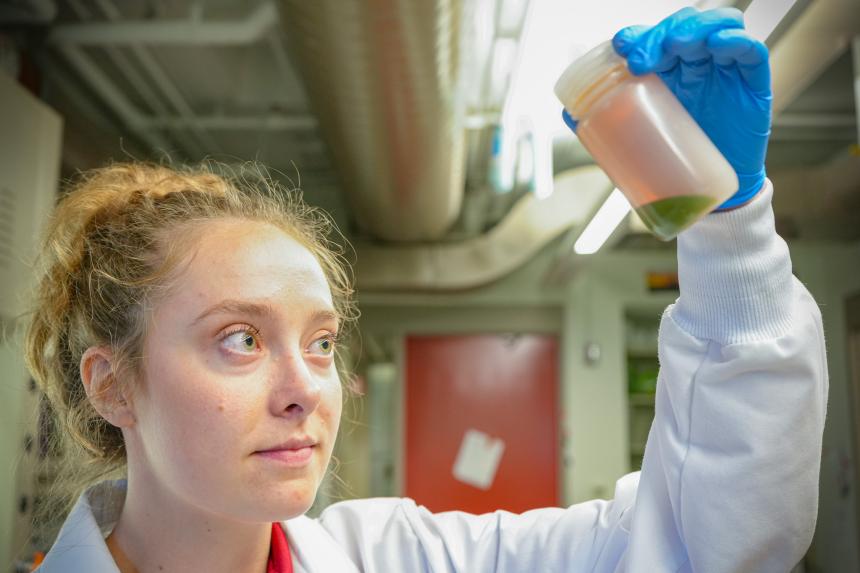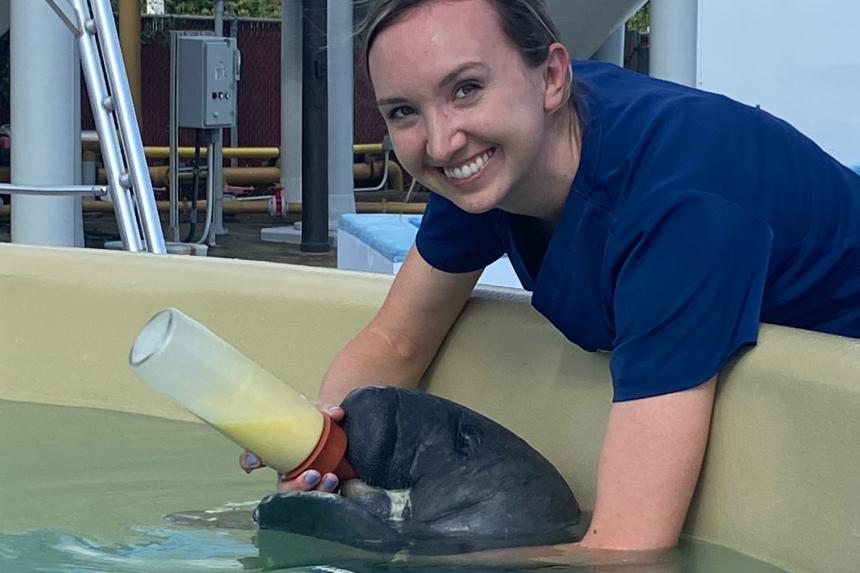Spotlights

For Your Information
October 05, 2023
Since 2005, highly pathogenic avian influenza A H5N1 viruses have spread from Asia worldwide, infecting poultry, humans and wild birds. This new paper contributes to the understanding of the prevalence and ecology of low-pathogenicity avian influenza viruses in Mongolia, where birds from multiple flyways mix.

Video
October 03, 2023
Enjoy these beautiful wild elephants in Chobe National Park, Botswana - part of the KAZA (Kavango Zambezi) Transfrontier Conservation Area - where we're working to restore key wildlife migration corridors.

News
September 15, 2023
In this alumni spotlight, we sit down with Cornell alum Hayley Murphy, CEO of the Detroit Zoological Society, and discuss her career journey as zoological veterinarian and wildlife conservationist.

Announcement
September 12, 2023
We're excited to welcome Maggie Swift as a Cornell Atkinson Postdoctoral Fellow, who will use advanced computer modeling to simulate elephant movements in southern Africa that will make it easier to evaluate scenarios for integrative, sustainable land-use management.

Blog
September 07, 2023
Cornell veterinary student Ashley Broderick conducted field surveys and a wildlife health research project on endangered hornbill species to help aid veterinarians who care for hornbills worldwide.

Podcast
September 05, 2023
Cornell's Dr. Martin Gilbert was interviewed for a Youth Geographic Association podcast about his journey into vulture conservation and ecology in Asia and Africa alongside his revolutionary research that tackled vulture population declines to help promote their recovery.

Blog
August 25, 2023
This past spring, Cornell veterinary student Amanda Bielecki, DVM '25, gave an oral presentation at the 79th Annual Northeast Association of Fish and Wildlife Agencies conference about lead exposure in bobcats and fishers.

News
August 18, 2023
While she’s now nearing the completion of a two-year Veterinary Fellowship at the National Aquarium, Sarah Balik ‘15, DVM ‘19, clearly recalls experiences she had as a Cornell veterinary student that set her on her current path.
Video
July 24, 2023
Rivaling the wildebeest migration of the Serengeti, the great Ithaca salamander migration is truly a wildlife spectacle!

News
June 29, 2023
Cornell alumna Tatiana Weisbrod, DVM ‘17, once thought medical school was in her future, until she came across the Cornell AQUAVET® program, which changed the trajectory of her career.
